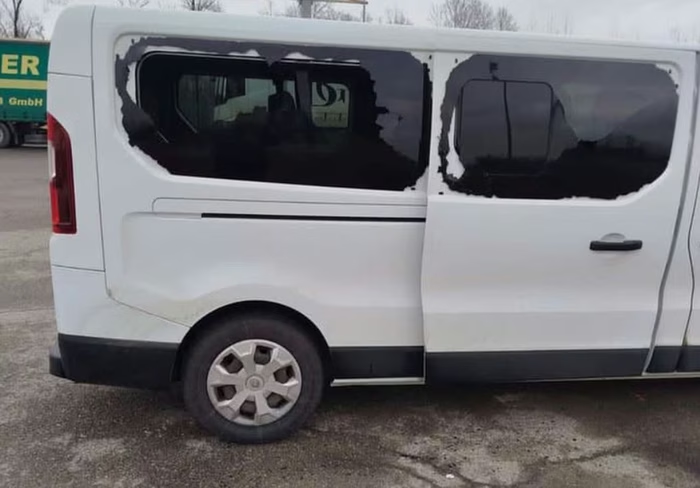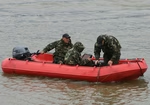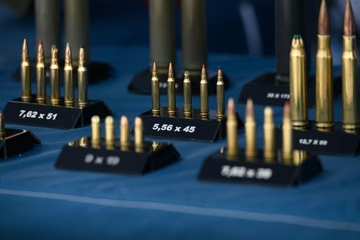
The European Commission (EC) is proposing the deployment of staff from the European Union's external border agency at non-EU borders in the Western Balkans as part of its EU Action Plan on the Western Balkans to respond to irregular arrivals from the region.
“The Western Balkan route has been in our focus for a while now. At the Home Affairs meeting on 13 October, Ministers agreed on a common approach. This was further elaborated at the Prague and Berlin processes. In Tirana at the start of November, with Western Balkan partners, we made progress on visa alignment and the fighting against migrant smuggling. But challenges remain. With this Action Plan, we are now building on our good cooperation and we provide a path forward for continuing to work closely together,” said Ylva Johansson, EU Commissioner for Home Affairs.
According to Margaritis Schinas, Vice-President for Promoting our European Way of Life, arrivals along the Western Balkan route have tripled compared to last year.
“I visited four Western Balkan countries in October to engage with our partners, and we are committed to keeping up this momentum with a series of 20 immediate operational measures to address the migratory pressure. Migration is a common challenge and something we must tackle jointly, leaving none of our Member States and Western Balkan partners alone with the challenges they are facing,” he said.
The EC said that the Action Plan on the Western Balkans identifies 20 operational measures structured along 5 pillars:
1) strengthening border management along the routes
2) swift asylum procedures and support reception capacity
3) fighting migrant smuggling
4) enhancing readmission cooperation and returns
5) achieving visa policy alignment
“The measures are focused on support to or actions by Western Balkan partners, and action in the EU. It aims to strengthen the cooperation on migration and border management with partners in Western Balkans in light of their unique status with EU accession perspective and their continued efforts to align with EU rules,” the EC said.
Here are some details on the policies the EC recommended:
“Pillar One: Strengthen border management along the routes
Reinforcing border management along the whole migration route is essential to reduce irregular flows, also in light of the evolving modus operandi of smugglers, the increased use of violence, and the risks of firearms trafficking and organised crime. The EU has already concluded status agreements with Albania, Montenegro, Serbia and North Macedonia, allowing Frontex to deploy the European Border and Coast Guard standing corps to joint operations in the region. The Frontex joint operations and deployments will be strengthened, and new status agreements will be negotiated swiftly. At the same time, we will review and potentially increase Frontex support to Member States at the EU external borders.
Pillar two: Ensure swift asylum procedure and support reception capacity
The EU remains committed to strengthening the asylum capacity of Western Balkans partners and is supporting reception across the region through an ongoing Instrument for Pre-accession Assistance (IPA) programme across the region. Continued support for the Western Balkans partners includes further strengthening their asylum and registration procedures as well as ensuring adequate reception conditions. The EU will notably continue to work with the Western Balkans partners to develop contingency planning and ensure preparedness for the winter season.
In the EU, a swift implementation of the roadmap on Dublin transfers and Eurodac registrations are also actions required to address secondary movements and improve migration management.
Pillar three: Fighting migrant smuggling
During the EU-Western Balkans Justice and Home Affairs Ministerial on 3 November 2022 the Commission launched an Anti-Smuggling Operational Partnership. To continue strengthening actions along the whole route it is necessary to establish a Europol operational task force, enhance participation of all Western Balkan partners in the EMPACT cycle 2022-2025 and implement the recently adopted IPA programme on anti-smuggling. Reaching an agreement with co-legislators on the proposal to sanction transport operators involved in migrant smuggling is also essential. As a bridging measure, the Commission will consolidate an operational toolbox with measures targeting transport operators.
Pillar four: Enhancing readmission cooperation and returns
The full implementation of readmission agreements with Western Balkan partners is the backbone of return and readmission cooperation. We will support Western Balkans partners with EU action to step up returns in the region, strengthening operational capacities through Frontex, as well as convening Joint Readmission Committees. A new programme on returns from the region will be developed in 2023, stepping up cooperation and coordination at operational level between the EU, the Western Balkans and countries of origin.
Pillar five: Achieving the alignment of visa policy
Visa policy alignment is crucial for the good functioning of the visa free regime of the Western Balkans with the EU. All Western Balkans partners should align their visa policy with the EU as a matter of priority. The Commission is adopting today its Fifth report on visa suspension on the monitoring of the EU visa-free regime with Albania, Bosnia and Herzegovina, Montenegro, North Macedonia and Serbia, as well as Georgia, Moldova and Ukraine. The report focuses on actions taken to address the recommendations made by the Commission in the Fourth report, addressing the requirements for visa-free continue to be fulfilled but immediate steps are needed on alignment with EU visa policy.”
Kakvo je tvoje mišljenje o ovome?
Učestvuj u diskusiji ili pročitaj komentare





 Srbija
Srbija
 Hrvatska
Hrvatska
 Slovenija
Slovenija



























































